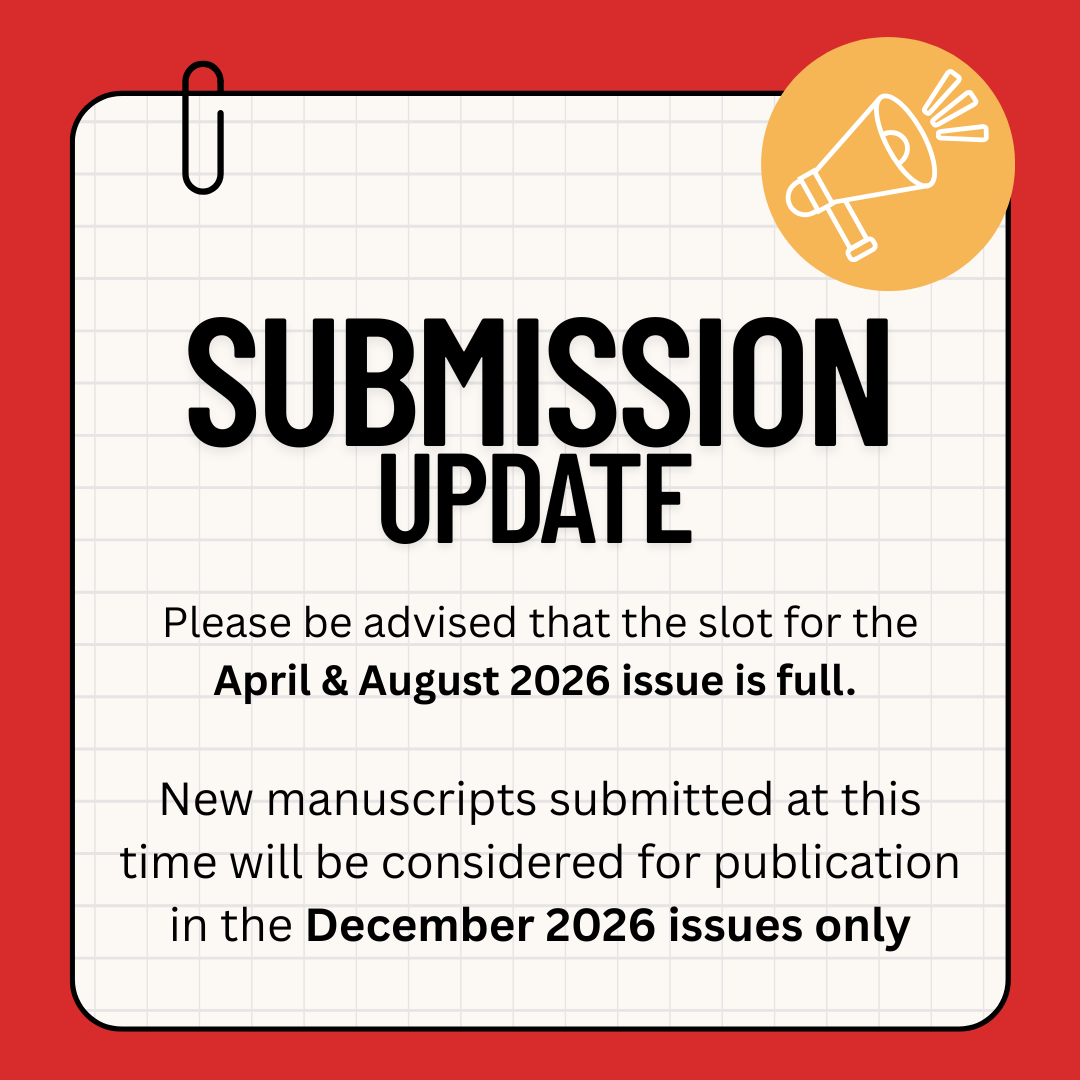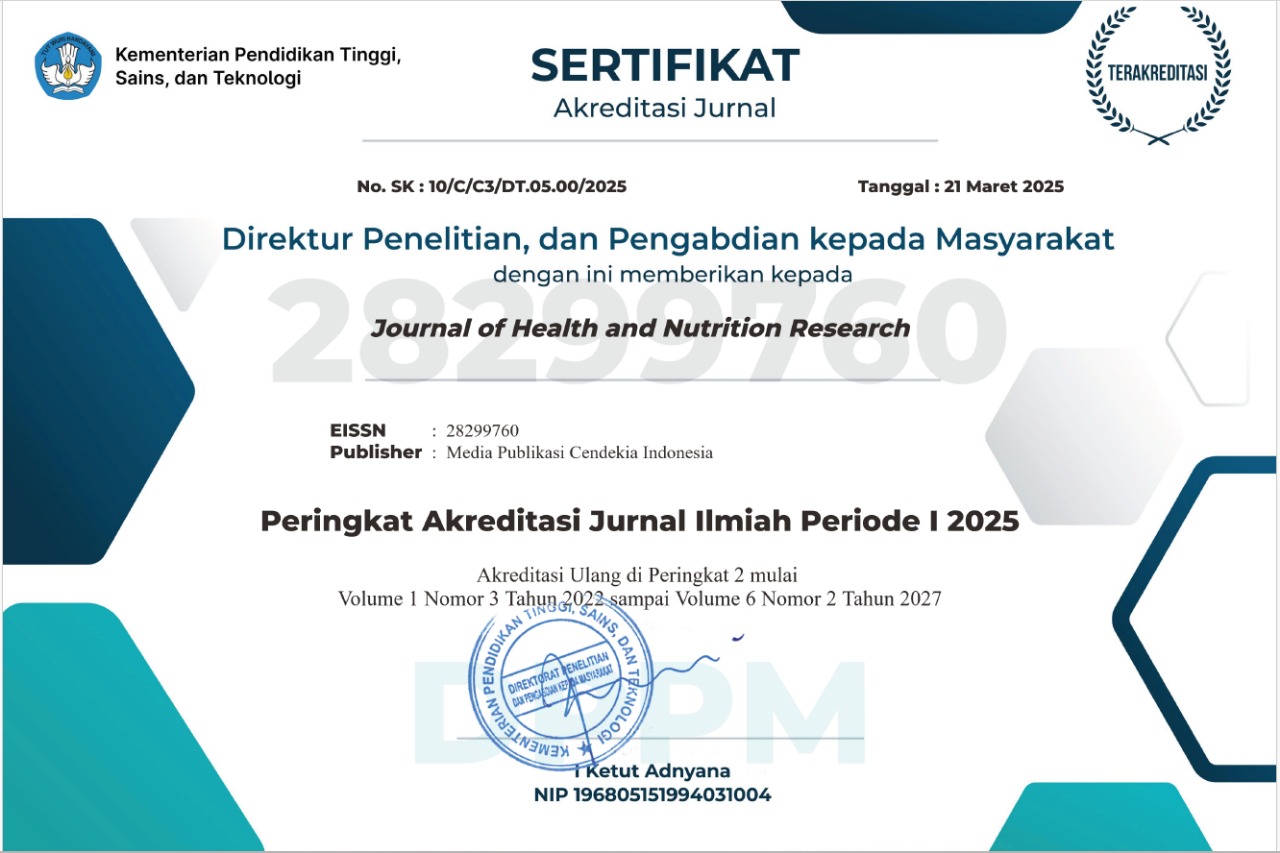Effectiveness Of Structured Spiritual Care Models in Improving Psychological and Physiological Outcomes in Intensive Care Unit (ICU) Patients: A Systematic Review
Keywords:
Spiritual care, ICU, Chaplain-Led Intervention, Psychological well-beingAbstract
Despite their critical role in patient well-being, spiritual needs are often overlooked in intensive care settings. Addressing these needs through structured interventions may improve patients' psychological and physiological outcomes in Intensive Care Unit (ICU). This systematic review aims to identify and evaluate various spiritual care models implemented in ICU settings and their impact on patient outcomes. A systematic search was conducted across six databases (PubMed Central, ScienceDirect, Sage Journals, Cambridge Core, Cochrane Library, and ProQuest) for studies published up to 2023. Eligible studies met the following criteria: (i) experimental design, (ii) spiritual care interventions, and (iii) ICU implementation. The screening process was conducted in two phases: title and abstract screening, followed by full-text assessment, with methodological quality evaluation. A total of 6,975 articles were identified, and 11 studies involving 842 participants met the inclusion criteria. Three distinct spiritual care models were identified: Chaplain-led picture-guided spiritual care, HeartTouch Technique, and Islamic-based spiritual care. Chaplain-led picture-guided spiritual care was particularly effective in reducing anxiety, while Islamic-based spiritual care, particularly Quran recitation, demonstrated significant benefits in reducing stress and promoting emotional well-being. These interventions demonstrated significant benefits, including reductions in stress and anxiety (reported in 4/11 studies), improvements in well-being (3/11 studies), and decreased feelings of isolation (2/11 studies). No significant adverse effects were reported. Spiritual care interventions in ICU settings provide psychological and emotional benefits for patients, reducing anxiety, stress, and isolation.
Downloads
References
Barros JKA de, Siuves A. Stressors in intensive care units: strategies for humanization of care. Hosp Palliat Med Int J. 2018;2(6):378–84.
Urden LD, Stacy KM, Lough ME. Critical Care Nursing : Diagnosis and Management. 7th ed. Canada: Mosby; 2014.
Gültekin Y, Özçelik Z, Akinci SB, Yorganci HK. Evaluation of stressors in intensive care units. Turkish J Surg. 2018;34(1):5–8.
Krampe H, Denke C, Gülden J, Mauersberger VM, Ehlen L, Schönthaler E, et al. Perceived severity of stressors in the intensive care unit: A systematic review and semi-quantitative analysis of the literature on the perspectives of patients, health care providers and relatives. J Clin Med. 2021;10(17):8–10.
Willemse S, Smeets W, van Leeuwen E, Nielen-Rosier T, Janssen L, Foudraine N. Spiritual care in the intensive care unit: An integrative literature research. J Crit Care. 2020;57:55–78.
Klimasinski MW. Spiritual care in the intensive care unit. Anaesthesiol Intensive Ther. 2021;53(4):350–7.
Simkus J. Vol. 1, Symply Psychology. 2023 [cited 2023 Nov 11]. p. 282 Control Group Vs Experimental Group. Available from: https://www.simplypsychology.org/control-and-experimental-group-differences.html
The Joanna Briggs Institute. Supporting Document for the Joanna Briggs Institute Levels of Evidence and Grades of Recommendation. Joanna Briggs Inst. 2014;(January):1–18.
Fasihizadeh H, Nasiriani K. Effect of Spiritual Care on Chest Tube Removal Anxiety and Pain in Heart Surgery in Muslim Patients (Shia and Sunni). J Pastor Care Couns. 2020;74(4):234–40.
Naseri-Salahshour V, Varaei S, Sajadi M, Tajdari S, Sabzaligol M, Fayazi N. The effect of religious intervention on the level of consciousness of comatose patients hospitalized in an intensive care unit: a randomized clinical trial. Eur J Integr Med. 2018;21:53–7.
Marofi M, Abedini F, Shirazi M, Badiei Z, Baghersad Z, Nikobakht F. Effect of the sound of the holy quran on the physiological responses and pain caused by blood sampling from the heels of hospitalized neonates at the neonatal intensive care unit. Iran J Neonatol. 2018;9(3):57‐63.
Berning JN, Poor AD, Buckley SM, Patel KR, Lederer DJ, Goldstein NE, et al. A novel picture guide to improve spiritual care and reduce anxiety in mechanically ventilated adults in the intensive care unit. Ann Am Thorac Soc. 2016;13(8):1333–42.
Purnawan I, Setiyarini S, Probosuseno P, Widyastuti Y. The Effect of the Dreamer Spiritual Therapies on Saliva Cortisol Hormone and Pain Score Patients in the Intensive Care Unit : A True-experimental Study. Maced J Med Sci. 2022;9:281–7.
Damayanti DS, Ismail D, Warsiti. The Effect Of Listening To Murottal Qur’an On The Oxygen Saturation Level In Preterm Infants In The Neonatal Intensive Care Unit. Belitung Nurs J. 2018;4(5):457–61.
Purnawan I, Hidayat AI, Sutrisna E, Alivian GN, Wirakhmi IN. Efficacy of Listening to Murattal in Reducing the Pain Experienced by ICU Patients. J Keperawatan Soedirman. 2021;16(3):97–100.
Bakar SABA. Effects of Holy Quran Listening on Physiological Stress Response. E-proceedings Conf Manag Muamalat (CoMM 2014), 26-27 May 2014. 2014;(May):978–83.
Priyanto, Kamal AF, Dahlia D, Anggraeni II. The Effectiveness of Psychoreligious Therapy: Murottal Al Qur’an on Chest Pain Level of the Patient in Intensive Care Unit. Proc Int Conf Nurs Heal Sci. 2020;1(1):5–14.
Nurhusna, Ekawaty F, Sulistiawan A. The Effect of Murottal Alquran Therapy on Heart Rate, Respiration Rate, Saturation Oxygen of Premature Infants Using Mechanical Ventilation in the Neonatal Intensive Care Unit. In: Advances in Health Sciences Research. Atlantis press; 2020. p. 353–61.
Purnawan I, Hidayat AI, Awaludin S, Alivian GN, Sutrisna E, Kesehatan F, et al. Unravelling The Impact Of Religious Therapy On Stress Biomarkers In Icu Patients - A True Experimental Study : Prodi Keperawatan Program Sarjana Universitas Harapan Bangsa. J Aisyah J Ilmu Kesehat. 2023;8(3):1443–56.
Czaplik M, Rossaint R, Kaliciak J, Follmann A, Kirfel S, Scharrer R, et al. Psychoacoustic analysis of noise and the application of earplugs in an ICU A randomised controlled clinical trial. Eur J Anaesthesiol. 2016;33:14–21.
Garrouste-Orgeas M, Flahault C, Fasse L, Ruckly S, Amdjar-Badidi N, Argaud L, et al. The ICU-Diary study: Prospective, multicenter comparative study of the impact of an ICU diary on the wellbeing of patients and families in French ICUs. Trials. 2017;18(1):1–11.
Gustad LT, Chaboyer W, Wallis M. Performance of the faces anxiety scale in patients transferred from the ICU. Intensive Crit Care Nurs. 2005;21(6):355–60.
May AD, Parker AM, Caldwell ES, Hough CL, Jutte JE, Gonzalez MS, et al. Provider-Documented Anxiety in the ICU: Prevalence, Risk Factors, and Associated Patient Outcomes. J Intensive Care Med. 2021 Dec;36(12):1424–30.
Wawer E, Viprey M, Floccard B, Saoud M, Subtil F, Wafa H, et al. Early Detection of Patients at Risk of Developing a Post-Traumatic Stress Disorder After an ICU Stay. Crit Care Med. 2020;48(11):1572–9.
Adolph M, Stawicki S, Papadimos T, Frier K, Gerlach A. Palliative critical care in the intensive care unit: A 2011 perspective. Int J Crit Illn Inj Sci. 2011;1(2):147.
Kapoustina O, Echegaray-Benites C, Gélinas C. Fluctuations in vital signs and behavioural responses of brain surgery patients in the Intensive Care Unit: Are they valid indicators of pain? J Adv Nurs. 2014;70(11):2562–76.
Bannon L, McGaughey J, Clarke M, McAuley DF, Blackwood B. Impact of non-pharmacological interventions on prevention and treatment of delirium in critically ill patients: Protocol for a systematic review of quantitative and qualitative research. Syst Rev. 2016;5(1):1–9.
Litton E, Carnegie V, Elliott R, Webb SAR. The Efficacy of Earplugs as a Sleep Hygiene Strategy for Reducing Delirium in the ICU: A Systematic Review and Meta-Analysis*. Crit Care Med. 2016;44(5).
Cist A, Choi P. Religion and Spirituality in the Intensive Care Unit. In: Spirituality and Religion Within the Culture of Medicine: From Evidence to Practice. Oxford University Press; 2017.
Yadak M, Ansari KA, Qutub H, Al-Otaibi H, Al-Omar O, Al-Onizi N, et al. The Effect of Listening to Holy Quran Recitation on Weaning Patients Receiving Mechanical Ventilation in the Intensive Care Unit: A Pilot Study. J Relig Health. 2019;58(1):64–73.

Published
How to Cite
Issue
Section
Copyright (c) 2025 Ikit Netra Wirakhmi, Iwan Purnawan

This work is licensed under a Creative Commons Attribution-NonCommercial-ShareAlike 4.0 International License.


















